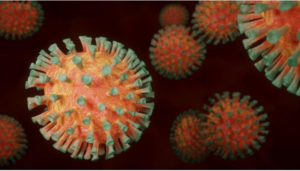
As the COVID-19 pandemic continues around the world, global public health authorities are closely monitoring the coronavirus mutations.
Even though quite a few variants are circulating worldwide, there are a few variants of concern that have shown increased transmissibility and risk of more severe infections. Perhaps, the most worrisome of all variant concerns is the delta variant. This post looks at why the delta variant is one of the most worrisome coronavirus strains.
Coronavirus Mutations
Viruses are constantly changing form. They mutate to adapt and survive. As a result, variants emerge which have one or more strains that are different from others. Global health authorities such as the World Health Organization (WHO) as well as the CDC closely monitor these variants to find out how they vary in terms of characteristics.
Since the outbreak of the pandemic, the coronavirus has changed several forms and has had several variants. The health authorities have classified them into three categories;
- Variants of interest – Variants that may differ in characteristics but are not widely prevalent in the general population.
- Variants of Concern – Variants that have higher transmissibility and risk of more severe infection.
- Variants of High Consequence – variants that are resistant to vaccines and available treatment.
So far, there are no variants of high consequence, however, there is one that is concerning, and is responsible for the recent upsurges in the number of cases worldwide. This is the delta variant, also known as B.1.617.2.
The Delta Variant

This virus mutation is one of the most worrisome strains of COVID-19 because it can spread more easily. The strain has mutations on the spike protein, which make it easier for the virus to infect human cells. So, individuals infected with this variant are more contagious.
Research suggests that this variant is around 50% more contagious than the Alpha variant, the strain that was first identified in the U.K. Note that the alpha, which was the first variant also known as B.1.1.7, was already 50% more contagious than the novel coronavirus first identified in China in December 2019.
According to statistics, a person infected with the delta variant will likely infect three to four individuals on average. The average was as low as one or two individuals with the original coronavirus strain, but the Delta variant is considered dangerous because it may be able to escape the protection of the COVID-19 vaccines. The average infection per day for this mutation is 24,000.
Recent data from the UK suggests that the Delta variant can cause headaches, sore throat, runny noses, and possibly a fever and a cough, even if you are fully vaccinated, but the possibility of having severe responses to this variant appears to be much lower than it predecessors, especially if you have been vaccinated.
According to a recent study in Israel, the chances are 64% effective at preventing infection but 93% at preventing serious illness and hospitalization after receiving both doses of the Pfizer vaccine.
Delta Plus – A Sub-Variant
Another reason why the Delta variant is one of the most worrisome strains is that it also has a sub-variant known as Delta Plus, also known as B.1.617.2.1 or AY.1. This particular coronavirus strain allows it to attack the lung cells more strongly and may also escape the protection offered by the vaccine.
The sub-variant is considered to be the variant of the coronavirus strain that was responsible for the recent wave of COVID-19 in India. While the Indian health authorities have already classified it as a variant of concern, the WHO and CDC do not consider it as a variant of concern.
The Symptoms Caused by Delta Variant
Some of the symptoms caused by the Delta variant are quite similar to the symptoms caused by the original coronavirus strain which include the following:
- Persistent cough
- Headache
- Fever
- Sore throat
However, according to studies, there are a few symptoms that are different from the original coronavirus strain. Unlike the original coronavirus strain, loss of sense of taste and smell is less common among individuals infected with the Delta variant. Moreover, headaches and runny noses seem to be more common.
Current Delta Variant Situation in the U.S.
The Delta variant has been identified in 50 states in the U.S. If you look at the new cases, the Delta variant accounts for more than 50% of new infections in the U.S. on average with some states reporting as many as 80% cases due to the Delta variant. Some of the potentially high-risk states include Kansas, Missouri, Iowa, and Nebraska.
Additionally, in some parts of the world, where the number of new cases is increasing, the authorities are resorting back to measures that were initially enforced to curtail the spread of COVID-19. Countries such as Australia, South Africa, and Bangladesh have already enforced lockdowns and curfew while several other countries are placing travel restrictions and quarantine measures. In all, authorities are directing efforts to curtail the spread of the virus and reduce the transmission as the virus only mutates when it spreads to a larger part of the population.
As of now, no one is exactly sure how the Delta variant will affect the U.S. population since more than 50% of Americans have already received the vaccine.

The best precautions against this variant, as well as all the others, are the same as before, although some may think this is overkill at this point in time; however, these precautions are still the best defense after the vaccines: Stay away from potentially crowded areas, wash hands frequently, wear masks, eat healthily, take vitamins that help boost your immune system, and exercise.
Depending upon the state and county/city that you are in, whether you have been vaccinated or not, these precautions may be enhanced or reduced, but in a nutshell, just be careful!
